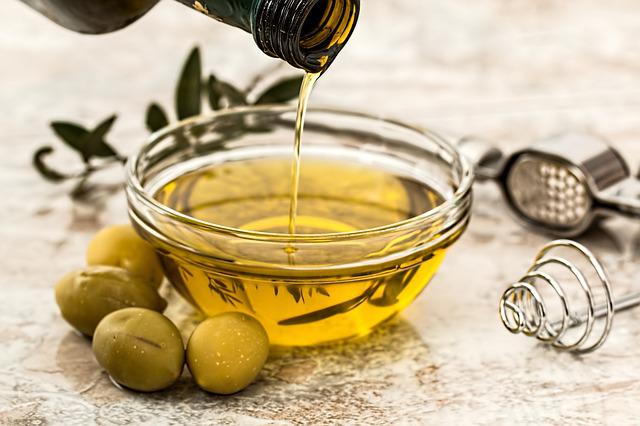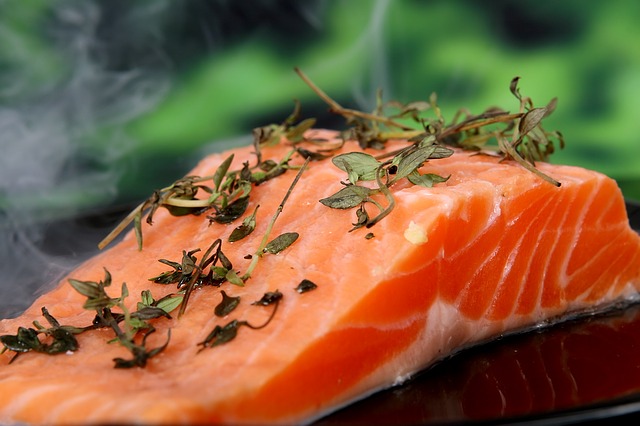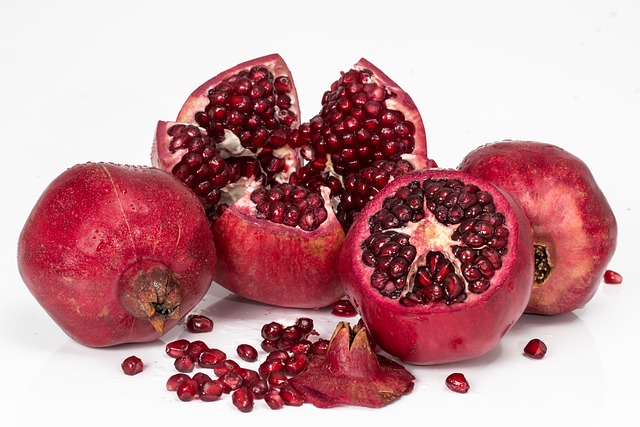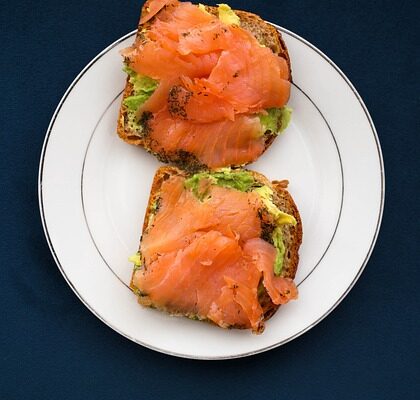Adding nutrient-dense foods to your diet can still keep you feeling and looking your best as you age. In general, strive to eat: protein-rich foods.
The foods we eat as we age can have a significant impact on our fitness, appearance, quality of life, and illness risk.
To promote the normal aging process, our bodies rely on a variety of nutrients. Some nutrients from foods, for example, may help prevent the effects of aging by encouraging healthy skin.
It’s vital to remember that consuming certain foods will not make you look younger and that nutrition is simply one part of aging gracefully.
Here are some nutritious foods that help you age well.
1. Olive oil, extra virgin
One of the most nutritious oils is extra virgin olive oil. It’s high in good fats and antioxidants, which help reduce inflammation and oxidative damage produced by a free radical imbalance in the body. A high-olive-oil diet has been related to a lower risk of chronic diseases.
Monounsaturated fats (MUFAs) account for approximately 73% of olive oil. According to some studies, a diet high in MUFAs may help decrease skin aging due to the anti-inflammatory properties of these good fats.

Extra virgin olive oil has antioxidants such as beta carotene and tocopherols, as well as phenolic compounds with anti-inflammatory properties.
In fact, according to one 2012 study, persons who ate a diet high in MUFAs from olive oil had a decreased risk of severe skin aging.
The anti-inflammatory qualities of both MUFAs and antioxidants contained in olive oil, according to the authors, were most likely responsible for this impact.
Choose cold-pressed extra virgin olive oil since it has more antioxidants and is less processed than other methods of extraction. Try it in a salad or dip.
SUMMARY: Olive oil has potent anti-inflammatory effects that may help to prevent severe skin aging and chronic disease.
2. A cup of green tea
Green tea is abundant in antioxidants, which might aid the body in combating free radicals.
Free radicals are unstable chemicals produced by regular cell action. They can also arise in reaction to environmental stresses such as ultraviolet (UV) light or tobacco smoke. When free radicals are present in large concentrations, they can cause cell damage.
This is where antioxidants come into play. These molecules bind to free radicals, preventing them from causing damage. Antioxidants are typically obtained through diet, such as green tea.
Green tea is particularly abundant in polyphenols, which are antioxidants. It contains a lot of epigallocatechin gallate (EGCG), catechins, and gallic acid.
- These may lower your risk of cardiovascular disease
- decrease in neurological function
- Other chronic disorders that cause premature aging
Green tea polyphenols may help prevent external skin aging caused by environmental stresses. Green tea extract is a very popular ingredient in many skin care products because of its antioxidant and anti-aging effects.
More research, however, is required before green tea products can be suggested to decrease skin aging. However, consuming an antioxidant-rich diet has been linked to a lower risk of chronic disease and healthier skin. Drinking green tea can also help you get more antioxidants in your diet.
SUMMARY: Green tea contains a lot of antioxidants. As a result, it may help protect your skin from free radicals from the environment, such as pollution or sunlight. However, more research is required.
3. Fish Oil
Fatty fish is a high-nutritional diet that can help maintain good skin.
Its long-chain omega-3 fats protect against heart disease, inflammation, and a variety of other problems.
Furthermore, studies have indicated that omega-3 fatty acids are associated with a strong skin barrier and have anti-inflammatory function that damages the skin. Salmon, one of the most popular varieties of fatty fish, contains additional nutrients that may benefit the health of your skin.
For starters, it includes astaxanthin, a carotenoid antioxidant that gives salmon its pink hue. For 12 weeks, patients with sun-damaged skin were given a combination of astaxanthin and collagen.

As a result, their skin elasticity and moisture improved significantly. While these findings appear promising, it is unclear if the effects were caused by astaxanthin, collagen, or both.
Salmon and other fatty fish are also high in protein, which your body needs to make collagen and elastin. These two molecules are in charge of the strength, plumpness, and suppleness of the skin.
Eating protein also aids with wound healing. Finally, fish has a lot of selenium. This mineral and antioxidant aids in DNA synthesis and repair and may help decrease and prevent UV-induced skin damage. Adequate levels in the body may lessen the severity of skin illnesses such as psoriasis.
SUMMARY: Salmon is high in omega-3s, protein, selenium, and astaxanthin, all of which are linked to healthy skin.
4. Cocoa or dark chocolate
Polyphenols, which work as antioxidants in the body, are abundant in dark chocolate.
It includes flavanols, which have been linked to a variety of health advantages, including a lower risk of cognitive decline, type 2 diabetes, and heart disease.
Furthermore, it is believed that diets that are high in antioxidants and flavonoids can help protect the skin from solar damage and slow the aging process.
Participants in one high-quality 24-week trial who drank a flavanol-rich cocoa beverage saw significant improvements in skin elasticity and face wrinkles when compared to those in the control group. While these findings are encouraging, other research has found no evidence that dark chocolate enhances skin appearance or aging.
Remember that the higher the flavanol level, the higher the cocoa content. If you wish to include dark chocolate in your diet, go for one with at least 70% cocoa solids and little added sugar.
SUMMARY: Flavonoids in dark chocolate serve as antioxidants in the body. Some preliminary research indicates that it may benefit skin health, but additional research is required.
5. Fruits and vegetables
Most veggies are high in nutrients and low in calories.
They include antioxidants, which aid in the prevention of heart disease, cataracts, and certain malignancies. Many vegetables include carotenoids such as beta-carotene and lycopene.
According to some studies, a diet rich in carotenoids might help in protecting the skin against the sun’s UV rays, which are the leading cause of premature skin aging.
The following foods are high in beta-carotene:
- carrots
- pumpkin
- potatoes dulce
Many veggies are also high in vitamin C, a powerful antioxidant. Vitamin C is also essential for collagen formation. Collagen is an important skin-building ingredient, but its production begins to wane beyond the age of 25.
Leafy greens, bell peppers, tomatoes, and broccoli have the highest vitamin C concentration.
Eating veggies of various hues is crucial since each color symbolizes a distinct antioxidant that can benefit your skin and overall health.
Aim for at least two veggies at each meal, and always use sunscreen to protect your skin.
SUMMARY: Vegetables are high in antioxidants, which can protect your skin from sun damage and promote healthy skin regeneration. View More
6. Flax seeds
Flax seeds provide numerous health benefits.
They contain lignans, a type of polyphenol with antioxidant properties that may reduce your chance of developing chronic diseases such as breast cancer and heart disease.
They are also high in alpha-linolenic acid (ALA), an omega-3 fatty acid. A diet high in omega-3 fats promotes a healthy skin membrane by keeping your skin moisturized and plump. Women who drank flax seeds or flax oil for 12 weeks demonstrated greater hydration and smoother skin in high-quality studies published in 2009 and 2011. However, more recent research is required.
SUMMARY: Flaxseeds include lignans, which are antioxidants that assist the body in combating free radicals. They’re also high in alpha-linolenic acid (ALA), an omega-3 that promotes skin membrane health.

7. Pomegranates
Pomegranates, like most fruits, are high in antioxidants.
They’re high in potassium, vitamin K, and fiber, all of which promote heart health. They are also high in flavonoids, tannins, phenolic acids, and lignans.
According to certain human and animal research, the antioxidants in pomegranates may also help support healthy skin aging by reducing UV skin damage and brown patches caused by sun exposure.
These antioxidants also aid in maintaining the skin’s existing collagen while also encouraging the skin to produce new collagen.
Despite the fact that additional research is needed, pomegranate seeds and juice can provide a quick, nutritious supply of antioxidants in the diet.
SUMMARY: Pomegranates are high in antioxidants, which may aid in skin regeneration and protect the skin from UV damage.
8. Avocados
Avocados are high in heart-healthy fats, fiber, and a variety of many vitamins and minerals that are necessary for good health.
Their high monounsaturated fat content may promote healthy skin by supporting a healthy skin membrane, whereas their high antioxidant content may combat free radicals that damage and age the skin.
One study, for example, found that a diet high in plant-based lipids was associated with better skin health in older persons.
Avocados are an easy method to gain extra nourishment for good skin because of their excellent taste and adaptability.
SUMMARY: Avocados are high in monounsaturated fats and antioxidants, which aid in the maintenance of a healthy skin membrane and the prevention of free radical damage, which causes aging.
9. Tomatoes
Tomatoes have numerous health benefits, many of which are linked to their high lycopene content.
Lycopene is a carotenoid that contributes to the red color of tomatoes. It also functions as an antioxidant, lowering the risk of chronic disease.
Lycopene has been shown in human skin samples to provide a tiny level of protection from the sun’s harmful rays. However, this level of protection is substantially lower than that provided by sunscreen.
Women who consumed an antioxidant-rich beverage that had soy isoflavones, lycopene, fish oil, and vitamins C and E everyday experienced a meaningful decrease in wrinkle depth after 15 weeks in one trial.
However, because the beverage contained multiple other chemicals, the study cannot directly link lycopene to these skin advantages.
The combination of tomatoes and healthy fats, such as olive oil or avocado, considerably increases the body’s absorption of lycopene.
SUMMARY: Tomatoes contain a lot of lycopene, which may provide some UV protection.
10. Peptides from collagen
Collagen is the most prevalent protein in the body. It is abundant in the skin and joints, in particular.
Our bodies begin to break down collagen and generate it less effectively as we age. This might result in the appearance of wrinkles and sagging skin over time.
While this is an unavoidable aspect of the aging process, eating nutrients that promote collagen synthesis. Protein-rich diets and vitamin C are examples. Avoiding behaviors that promote collagen breakdown can also be beneficial. Sun tanning and cigarette smoking are examples of these practices.

In addition, human studies have indicated that taking hydrolyzed collagen peptides – a smaller form of collagen that your body absorbs far more rapidly — may improve skin suppleness, hydration, and firmness while decreasing wrinkles.
However, many studies fail to account for other lifestyle factors such as protein intake, overall diet, and smoking. Furthermore, the body uses protein from collagen wherever it is needed. Therefore it is not guaranteed that it will be used by the skin.
Finally, it appears that eating a protein-rich diet is essential for healthy skin. Focus on eating a protein-rich diet first, and then take a collagen supplement if you want to increase your intake even more.
Chicken, tofu, fish, and eggs are all good sources of protein.
SUMMARY: Consuming hydrolyzed collagen peptides enhances skin hydration, elasticity, and firmness, according to numerous human studies. However, the studies’ weaknesses necessitate additional research.
To Conclude
The foods you eat can affect your skin’s health, especially how your skin changes as you age.
Foods abundant in protein, good fats, and antioxidants, in particular, have been linked to the most skin benefits.
Consider wearing sunscreen, avoiding smoking, remaining physically active, and utilizing suitable skin care products in addition to eating a nutritious diet rich in whole, plant-based foods.
